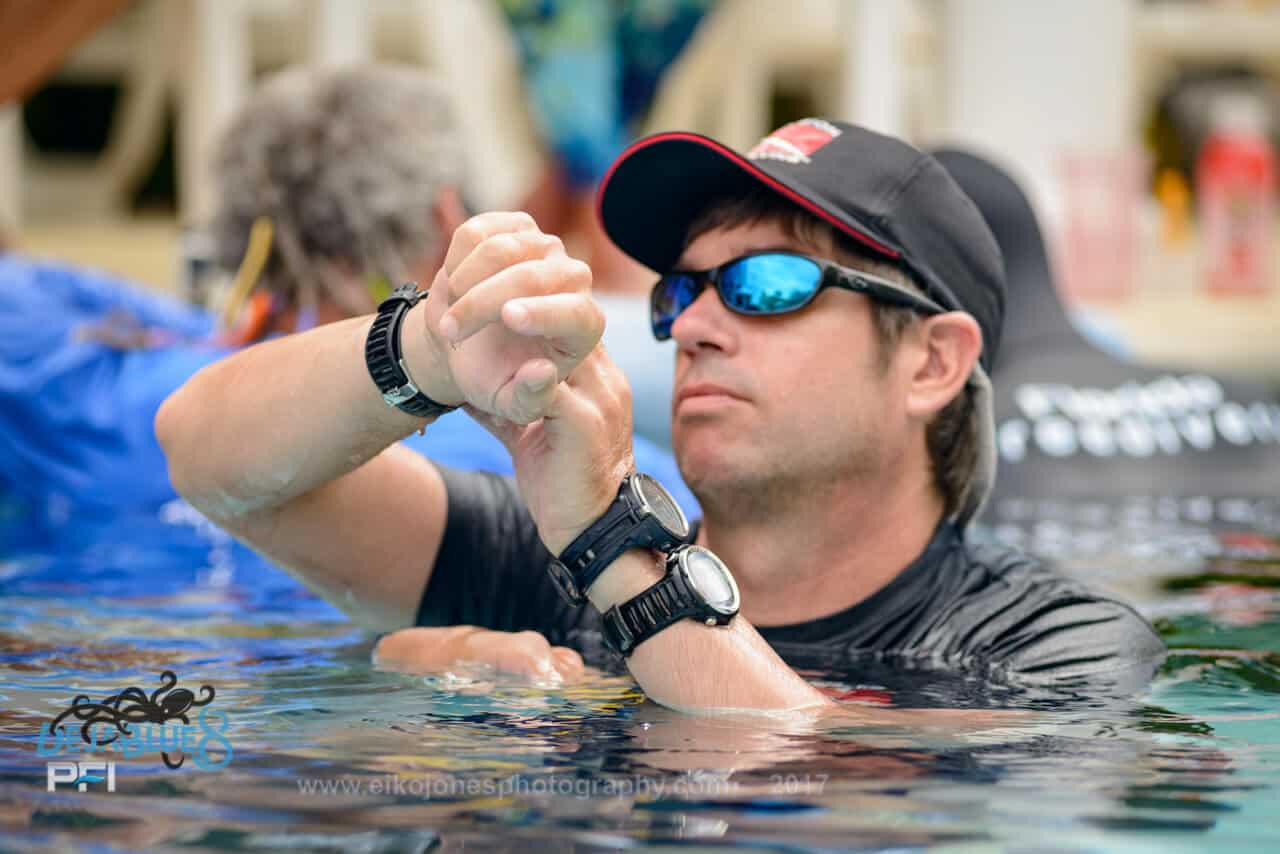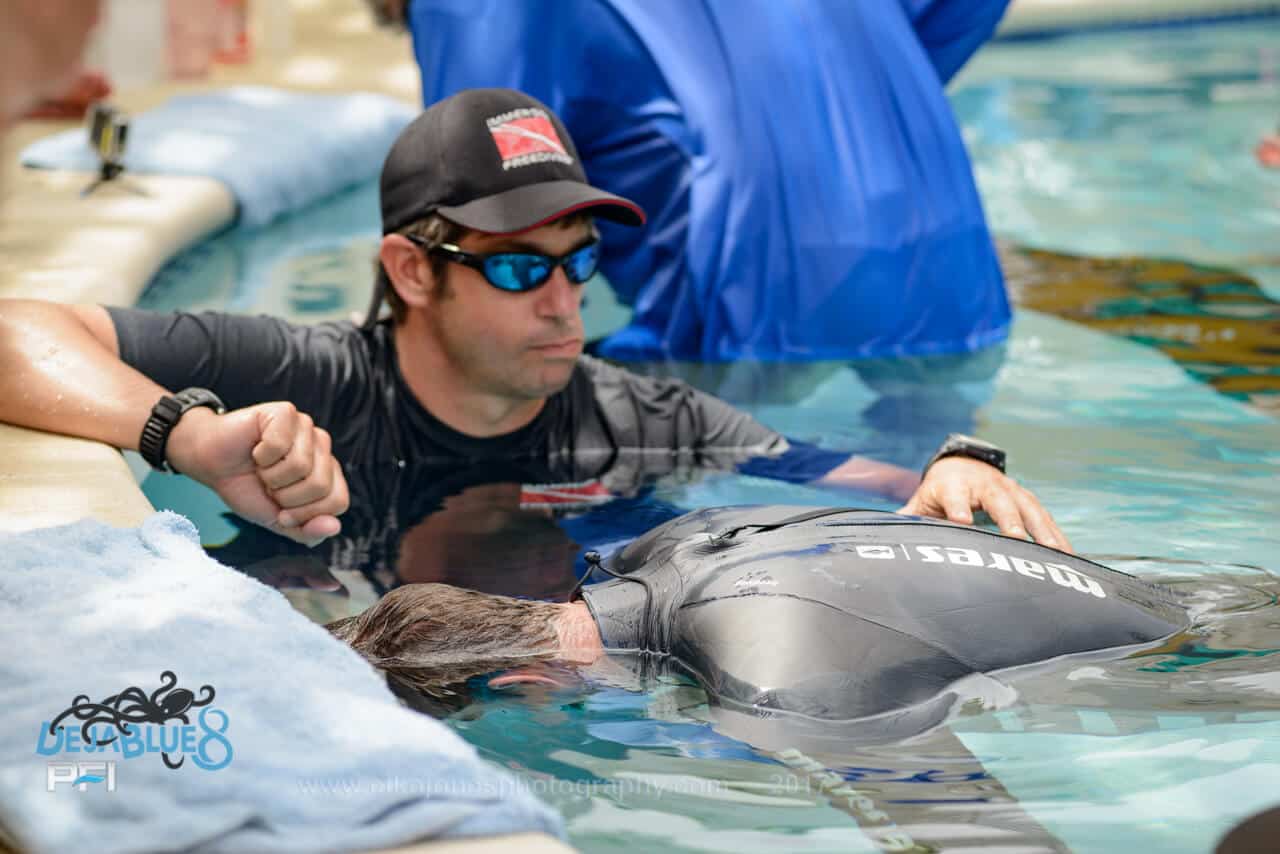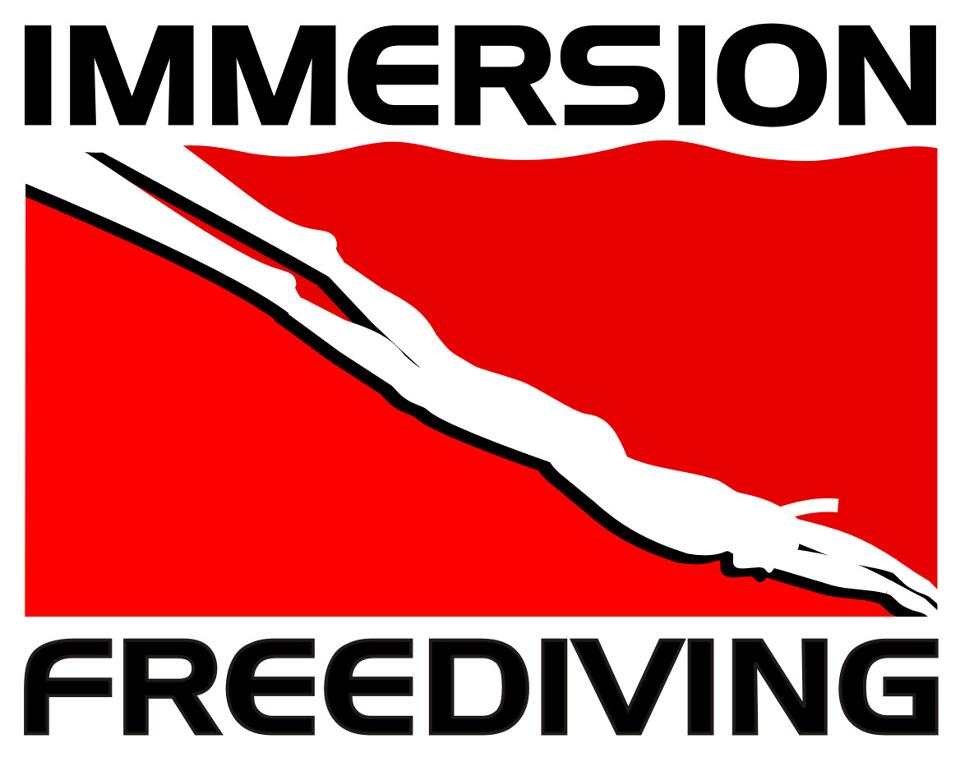Patience is a virtue for a freediving instructor.
I readily admit I am not a patient person, not even a little bit, yet I am an extremely patient instructor. That is really odd when you think about it. I believe utmost patience is absolutely necessary if you want to excel as an instructor.
I’m going to try to explain how someone who is not a patient person can be a patient instructor. If you are an instructor of any type, I hope you can use my experience to improve the service you provide your students by becoming more patient.
It’s not them, it is you.
When I teach a freediving instructor course, one of the things I say over and over is when a student makes a mistake in your class 80% of the time it’s your fault. With experience you learn certain things need to be said 4 or 5 times before they sink in, or you will discover that students need to be reminded of this particular issue every single time they get in the water before it “sticks”, or you need to demonstrate this skill from multiple angles before they can fully grasp everything.
When I see a student doing something incorrectly, I instinctively look at that as an opportunity to provide value. To be honest, it gets boring when everyone does everything right! I need to explain why what they are doing wrong, and give them actionable steps to remedy the issues. Every time a student has a problem this allows me to grow as an instructor. When I see the problem, I access all the times I’ve seen the problem before and then select the most appropriate response to this problem. Hopefully, this fixes the issue.
If my first attempt doesn’t work, I try again using a different approach. Some students need to understand what is going on in their mind, and they need to understand the process, the step by step method. Some students get confused by excessively verbal explanation, and would immediately grasp the issue if I just physically demonstrated what I wanted them to do. You need to be able to quickly address what type of student you have and adjust accordingly.
Typically I’m quickly able to address the problem because I’ve been a freediving instructor for over ten years. On occasion, my usual explanations don’t get the job done, and then I get excited. Now I’m the one that ’s gonna learn something. Now I have a challenge. Now I have to fully understand why this student is not able to understand what I’m asking and come up with a creative way to get my message across. This is exciting stuff! Once I get this issue sorted, this new explanation now gets stored in my repository of solutions to problems that I can now access next time I see this problem again. The more new ways you are forced to solve problems the more solutions you have to offer, then the next time you encounter this problem.
If you look at students problems in this manner, why would you get frustrated?
Why would I lose my patience when I’m giving an opportunity to prove my value. This is where you can take that student that is frustrated, feels like they can’t do it, and turn them around. When you take the time and patiently fix their issues, I assure you they will remember. They will turn into your loudest advocate. Because I think this way, my body language, and attitude comes across is easy going and helpful when addressing student problems because I see it as an opportunity, not an annoyance.
Time Pressure – a Freediving instructor nemesis.
There is one situation that can for sure make a freediving instructor or scuba instructor get frustrated when students exhibit problems, and that is time pressure. When you only have a certain amount of time in the pool or ocean and students mistakes causes you to not have enough time to cover the material that is a problem. If you don’t have enough to time budgeted to cover the material and deal with students mistakes that is not a problem with the student, but with you as the instructor and your class format. You need to have plenty of time to deal with the material and all the problems you will encounter. Otherwise, you will be forced to rush your students through things just to check off the boxes and you lose an opportunity to provide a higher level of service for your students. I guarantee your students can feel when the class is rushed, I guarantee they don’t like it and guess what they will post about the course online?
For instance, in my entry level freediving classes, I have a maximum of 5 students, 2 three hour pool session, and 2 three hour ocean sessions. I have the ability to make any of the sessions about 30-60 minutes longer if needed. If everything goes perfectly in my sessions we finish early and we have time to polish skills. If I have the typical amount of problems I will still finish on time. If I have lots and lots of problems and students with serious difficulty I can extend the time of the sessions and make sure they get what they need. As a freediving instructor who operates my own company and runs the classes precisely how I want to, I don’t have to worry about time pressure in most situations. Many instructors do not have this luxury as the format of the class is dictated by the dive shop owner who may or may not have experience as an instructor, or maybe be more worried about getting as many folks through as fast as possible to make more money. If you work in that environment (I’m sorry!) I would try to convince the person in charge of this that you can provide a better level of service, getter more return business, and get the all-powerful positive testimonial for your business with less time pressure. If you are your own boss, add 30-60 minutes to your classroom, pool & ocean sessions. This will give you some breathing room to give you the cover you need to deal with unexpected issues that may arise.
I must not be saying it loud enough approach.
Let’s look at a common problem I see among instructors. Let’s say my student has an issue and my first attempt at solving the problem, does not work. SAYING THE SAME THING AGAIN LOUDER AND LOUDER IS NOT TEACHING.
I remember once working on the dive boat and I saw an instructor yelling, “RELAX!” over and over, louder and louder to a diver in the water. I’m pretty sure the solution is not louder screaming.
This style of “teaching” is ineffective, shows lack of patience, and will drastically reduce your effectiveness as an instructor, and is the opposite of professional behavior you want your students to associate you with. Let’s look at what happens to your students when they perceive the instructor as losing their cool, getting frustrated with a student, or losing their patience.
As a freediving instructor, you want your students to be able to approach you with questions with any problems they are having. That’s how the whole thing works. As soon as students see you get frustrated with a student, you are telling every student in your class don’t ask me any questions or I might get mad at you. At this point you are done, the student will no longer ask questions and will just try to get through the program with you getting mad at them.
How to become more patient.
Remember when students are making a mistake I would tell you that 80% of the time it’s your fault. So how does it make sense to get frustrated with a student when they are making a mistake. Once you fix the issue you will likely think back and realize, oh yeah I forgot to mention that part in the class, or I forgot to add that little tidbit in my demonstration. To this day I still forgot to mention small things here and there and I am always annoyingly reminded of it when I see several students making the same mistake because I forgot to include something.
One of the things you can do to gain patience is put yourself in the same situation as your students are in. I remember being very humbled when I took my first Freediving course in 2008. My freediving instructor was Kirk Krack from Performance Freediving International. I was a scuba instructor at the time. One of the things you learn in a freediving class is to not dive with the snorkel in your mouth while underwater. I remember the last day Kirk telling me, “Ok Ted overall things look good, but you have to remember to keep the snorkel out, ok?” I remember telling him, “Got it I’ll take the snorkel out.” Right as I’m about to dive he says, “now remember Ted, take your snorkel out.” At this point, I’m thinking ok I got it, quit harping on the snorkel. Then as I’m taking my final breath and about to start my dive he says,” Remember no snorkel Ted!” At this point, I’m irritated with him reminding me so much about the snorkel. I start my dive and there is Kirk in front of me. He making this odd motion in front of his face. At this point, I’m frustrated and am thinking what the heck does he want now. He keeps making this motion in front of his face. I have zero idea what he is trying to tell me. Then he is pointing at my mouth and then at his snorkel. Then I realize OMG I did it again! I remove the snorkel and am furious at myself. When I hit the surface I did my recovery breaths and tell him, “Kirk it’s important you understand this, I’m normally not this stupid. You told me four times in a row to remove the snorkel and I still had my snorkel in.” He just laughed and said you’ll get it next time don’t worry about it.
Taking that freediving class was very humbling for me. It was also a great experience. As a scuba instructor in the Florida Keys who was diving and teaching almost every day year round, not surprisingly I got really good at scuba diving. The better you get it, the easier is to forget what it was like to struggle. After that freediving class the next time I had students struggling to remember things that I told them over and over again, I’d remember what I felt like with Kirk. It made me have much more empathy for what they were going through. I would then tell them the story about the snorkel and they would laugh and then they would feel better about what was going on, and what do you know, oftentimes that would help them fix their issues.
Want to get gain credibility with your students? You can paint yourself as a dive-god, or you could tell stories about your struggles. I promise you will win more students over to your side if you are more relatable to them than if you paint yourself as a superhuman dive-god
For every Freediving class I teach, I have 3 goals.
- I want to fundamentally and permanently change every single thing about the way they freedive.
- I want to give them the tools to dive safety and actually convince them to utilize those tools and procedures after they leave my control. There is a big difference between teaching them how to be safe and convincing them dive safe. More on this in a future article.
- I want them to say I was one of the best instructors they have ever worked with. I want them to say they were blown away by their experience with Immersion Freediving. I want them to feel like the didn’t just “a” take a Freediving class, but they experienced something special.
In order to accomplish these goals, I have to be patient. I can not achieve my goals if I lose my patience therefore, I don’t lose my patience as accomplishing those goals is very important to me. I spent a lot of time and energy over the last decade to get those butts in the seats of my classroom, but the goal is not to get butts in the seat. Once they are there, I have to deliver.
It’s easy to take a student who is a good listener, follows instructions well, already has some good Freediving ability and turn them into a good freediver. Its hard to turn someone with bad habits, someone that struggles following instructions, someone that doesn’t have confidence in themselves, someone who doesn’t listen, and turn them into a good freediver. When you spend the time and break through those barriers with that student that some instructors might label as difficult, you will have a loud and vocal supporter of you and your business for a long time to come.
The next time you encounter a “problem” realize this the beginning of turning a “problem” student into your biggest advocate.
BLOW OUT YOUR NOSE NOT YOUR MOUTH!!!
Back in my scuba days, I remember having a student that was struggling to clear their mask. Every time the student tried to clear the mask they would blow air out their mouth instead of their nose. I would tell them you need to blow out of your nose, not your mouth. Your mouth is not connected your mask, so when you blow out of your mouth the water stays in the mask. That’s why you need to blow out your nose and not your mouth. No matter how many times I tried to explain this it didn’t work. I tried explaining it different ways, I tried demonstrating the right way and the wrong way, I tried having them practice just blowing out their nose and mouth underwater, I tried Venn diagrams, I tried everything. Now I didn’t lose my temper, but I remember getting very frustrated. I remember loudly screaming in my head (not at the student) “How many times do I have to say blow out of your nose, not your mouth!”
After I came back from my Freediving class I was much better able to relate to situations like this and sharing my experiences helped students who struggled with similar issues.
 Exit your comfort zone.
Exit your comfort zone.
I love learning new things, I love being a student. When I’m a student, I struggle and make mistakes just like my students do. If you want to be a better freediving instructor spend more time as a student learning new things as opposed to staying in your bubble as an expert surrounded by experts. It will help you better relate to your students, it has helped me immensely. I would also recommend sitting in on other freediving instructors classes, There is no one right way to do things, but watching more experienced instructorss teach will have big pay-offs. I was lucky that I got to teach directly with Kirk and Mandy for 2 years when I first started. You can bet I still use many of things I watched them do in my classes today.
I have online freediving classes.
If you want to increase your bottom time and I know you do, take down more fuel. In this FREE course, you will learn how to take a 20-30% bigger breath. Take down more fuel to increase your bottom time, yes its that simple. This is what I teach all my student the first day of class. You can see it @ https://immersionfreediving.teachable.com/p/learn-to-take-a-20-30-bigger-breath
If you are freediving and you want to learn more about how to freedive safely, learn why the myth of I know my limits I don’t’ push myself, learn why in most circumstances in the ocean you would feel fine before a blackout, see a video of a real underwater spearfishing blackout, look at my free safety course. You can see it @https://immersionfreediving.teachable.com/p/freediving-safety You can also see an article I wrote for SpearingMagazine on this subject @ www.ImmersionFreediving.com/blackout.
If you are a freediver and you struggle to equalize your ears in the 15-40ft range. Check out my online course on how to properly equalize for freediving. You can see it @ https://immersionfreediving.teachable.com/p/road-map-to-frenzel. If you are curious about the quality of the program, I have been approached by a Scuba agency that wanted to purchase the program to include to all of their students. It contains 13 videos with over 2 hours of content with my step by step method I have used to teach over 500 freediving students.
If you are a freediving instructor and have had students that get stuck at 15-30ft during your class, you are aware this because they are not properly equalizing for freediving. I can create an affiliate link for your students. They get a discount, and you get a commision. I have tons of instructors that include a link to my equalizing course in their pre-course emails. This way the students go through the training with me before the course and show up to your door already doing Frenzel, that is what we call a win-win. If you interested in setting up an affiliate program reach out to me @ info@Immersionfreediving.com
